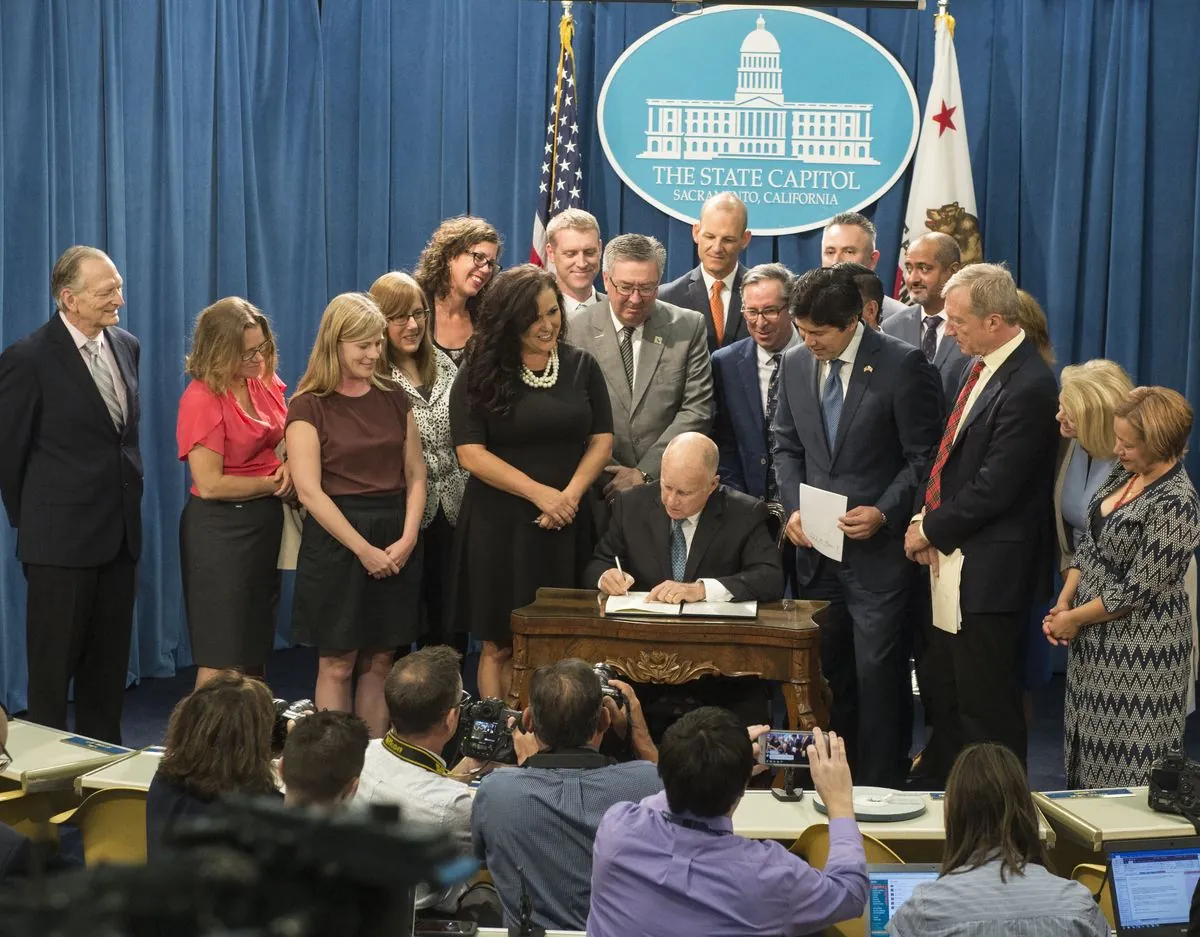California Enacts New Laws to Curb Oil and Gas Pollution
California Governor Gavin Newsom signs legislation to reduce oil and gas pollution, strengthening local control and imposing fines on low-producing wells. The move aims to hold the industry accountable and protect communities.

In a significant move to address environmental concerns, Governor Gavin Newsom of California has signed new legislation aimed at reducing oil and gas pollution. This action, taken on September 20, 2024, marks another chapter in the state's ongoing efforts to combat climate change and protect public health.
The newly enacted laws focus on three key areas:
- Expanding local government authority over oil and gas operations
- Accelerating the closure of inactive or "idle" wells
- Imposing fines on companies operating low-producing oil wells in the Inglewood Oil Field near Los Angeles
These measures are part of California's broader strategy to transition away from fossil fuels and achieve carbon neutrality by 2045. The state, known for its strict environmental regulations, has been at the forefront of renewable energy adoption and has set ambitious goals to reduce greenhouse gas emissions.
Newsom emphasized the importance of these laws in holding the oil industry accountable and safeguarding communities from pollution impacts. He stated, "It's been a long journey that we've been on over the course of many, many years. But tremendous progress is being made."
California, the most populous state in the US with the largest economy, has a complex relationship with oil production. The Inglewood Oil Field, discovered in 1924, is one of the largest urban oil fields in the country. The new legislation specifically targets this area, requiring companies to pay $10,000 monthly fines for operating low-producing wells near the field. These funds will be allocated to local projects such as park creation and affordable housing development.
Assemblymember Isaac Bryan, who authored the bill focusing on the Inglewood Oil Field, highlighted the health impacts on nearby communities. The law mandates the closure and sealing of all wells at the site by December 31, 2030.

The oil industry, represented by the Western States Petroleum Association, has criticized the new laws. Catherine Reheis-Boyd, the association's president, argued that the legislation would increase costs for Californians and potentially lead to greater reliance on imported oil.
This legislative action follows a 2022 law that banned new oil and gas wells within 3,200 feet (975 meters) of schools, homes, hospitals, and other community sites. The oil industry initially challenged this law through a referendum but later withdrew it in June 2024, opting instead for litigation.
California's commitment to environmental protection extends beyond oil and gas regulations. The state has implemented a cap-and-trade program to reduce carbon emissions, invested heavily in public transportation, and set targets for 100% clean electricity by 2045. It has also been a pioneer in electric vehicle adoption and solar energy implementation.
However, the state faces ongoing challenges in balancing its environmental goals with energy needs. California has experienced severe droughts and wildfires linked to climate change, prompting the implementation of water conservation measures and stricter building codes for energy efficiency.
As California continues its journey towards a cleaner, more sustainable future, these new laws represent another step in its long-standing tradition of environmental leadership. The state's actions often set precedents for national environmental policies, making its ongoing battle against fossil fuel pollution a matter of national and global significance.
"It's been a long journey that we've been on over the course of many, many years. But tremendous progress is being made."
While the path forward may be challenging, California's commitment to reducing oil and gas pollution and promoting renewable energy sources remains steadfast. The impact of these new laws will be closely watched by environmentalists, industry leaders, and policymakers across the nation.


































